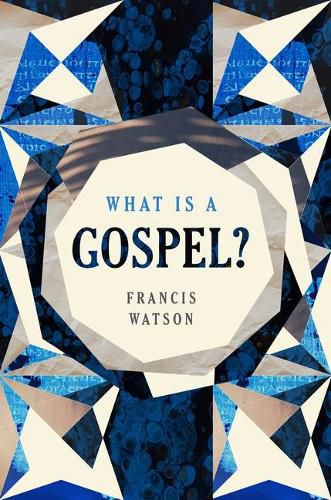Readings Newsletter
Become a Readings Member to make your shopping experience even easier.
Sign in or sign up for free!
You’re not far away from qualifying for FREE standard shipping within Australia
You’ve qualified for FREE standard shipping within Australia
The cart is loading…






When Christians speak of the gospels they’re usually referring to Matthew, Mark, Luke, and John. Other ancient writings about the life of Jesus are generally considered noncanonical or heretical. But what if these other gospel writings–including the Gospel of Thomas, the Gospel of Judas, and the Protevangelium of James–aren’t fundamentally different from the four canonical gospels?
In this follow-up to Gospel Writing: A Canonical Perspective, noted biblical scholar Francis Watson makes the case that viewing early gospel literature as a unified genre–sharing significant similarities in sources, content, and goals–allows us to discern important interrelated aspects that are lost amid the usual categories. Watson’s critical approach enables modern readers of the Bible to break free of fraught scholarly assumptions in order to better understand early Christian identity formation and beliefs.
$9.00 standard shipping within Australia
FREE standard shipping within Australia for orders over $100.00
Express & International shipping calculated at checkout
When Christians speak of the gospels they’re usually referring to Matthew, Mark, Luke, and John. Other ancient writings about the life of Jesus are generally considered noncanonical or heretical. But what if these other gospel writings–including the Gospel of Thomas, the Gospel of Judas, and the Protevangelium of James–aren’t fundamentally different from the four canonical gospels?
In this follow-up to Gospel Writing: A Canonical Perspective, noted biblical scholar Francis Watson makes the case that viewing early gospel literature as a unified genre–sharing significant similarities in sources, content, and goals–allows us to discern important interrelated aspects that are lost amid the usual categories. Watson’s critical approach enables modern readers of the Bible to break free of fraught scholarly assumptions in order to better understand early Christian identity formation and beliefs.